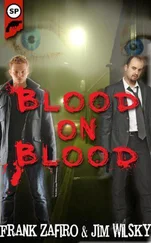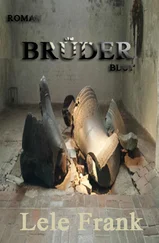Frank Tallis - Vienna Blood
Здесь есть возможность читать онлайн «Frank Tallis - Vienna Blood» весь текст электронной книги совершенно бесплатно (целиком полную версию без сокращений). В некоторых случаях можно слушать аудио, скачать через торрент в формате fb2 и присутствует краткое содержание. Жанр: Исторический детектив, на английском языке. Описание произведения, (предисловие) а так же отзывы посетителей доступны на портале библиотеки ЛибКат.
- Название:Vienna Blood
- Автор:
- Жанр:
- Год:неизвестен
- ISBN:нет данных
- Рейтинг книги:3 / 5. Голосов: 1
-
Избранное:Добавить в избранное
- Отзывы:
-
Ваша оценка:
- 60
- 1
- 2
- 3
- 4
- 5
Vienna Blood: краткое содержание, описание и аннотация
Предлагаем к чтению аннотацию, описание, краткое содержание или предисловие (зависит от того, что написал сам автор книги «Vienna Blood»). Если вы не нашли необходимую информацию о книге — напишите в комментариях, мы постараемся отыскать её.
Vienna Blood — читать онлайн бесплатно полную книгу (весь текст) целиком
Ниже представлен текст книги, разбитый по страницам. Система сохранения места последней прочитанной страницы, позволяет с удобством читать онлайн бесплатно книгу «Vienna Blood», без необходимости каждый раз заново искать на чём Вы остановились. Поставьте закладку, и сможете в любой момент перейти на страницу, на которой закончили чтение.
Интервал:
Закладка:
Liebermann had not really grasped Amelia's short explanation; however, he was too excited to stall his next question on a point of scientific curiosity.
“Miss Lydgate, I imagine that Professor Uhlenhuth must have conducted his work in a laboratory, using samples of fresh blood. Could the same test be used to establish the provenance of blood that is almost a week old?”
“Yes. One simply dissolves the crystals of dried blood in salt water. The test would be just as accurate.”
“Could you… Can you…?”
“Perform the precipitin test? I would have to reread some of Uhlenhuth's publications, but yes, the fundamental procedures are simple enough.”
“What will you need?”
“Some syringes, some test tubes, some human blood, the stained clothing-and…” Amelia touched her lips and, looking into the distance, added, “A rabbit.”
“I beg your pardon?”
Amelia turned to face Liebermann. There wasn't a trace of humor in her expression. “A rabbit.”
“What… any rabbit?”
“Yes. Providing it is alive, any rabbit will do.”
“Could you conduct the test tomorrow?”
“I could begin the test tomorrow-but producing an antiserum will take two weeks or thereabouts.”
“And the results will be conclusive?”
“Absolutely. Now come, Dr. Liebermann-you have had only one biscuit. You really must have another.”
Compelled by shame and guilt, Liebermann lifted a pale disc from the proffered plate and, smiling weakly, bit through the dry, thin biscuit with saintly forbearance.
21
THE SEATS IN THE Bosendorfer-Saal were not separated by armrests, and as the music became more turbulent, Clara edged closer to her fiance. Liebermann bowed his head, catching sight of the hem of her skirt and Clara's small black boots. She casually extended the toe, revealing-as if by accident-the roundness of her ankle. He imagined the appearance of her diminutive feet-which, in fact, he had never seen-the delicate fanning of metatarsal bones beneath translucent, pale skin. Taking her hand, he felt her fingers squeezing tighter with each musical culmination-and their exhausted release when the tension ebbed away. By the time the pianist had brought the recital to its dramatic conclusion, and the audience was responding with applause, the young couple was breathless with excitement.
Liebermann took Clara's arm and followed the other members of the audience out of the Bosendorfer-Saal and onto the busy thoroughfare of Herrengasse. A few gently falling flakes of snow glinted in the beams of the carriage lamps. Liebermann raised his arm to hail an approaching cab.
“No,” said Clara. “Let's walk for a while.”
“Walk? It's very cold.”
“Yes, but I feel like walking.”
Clara smiled uncertainly.
“Very well. Which way shall we go?”
“Toward the Volksgarten, then we can cut across to the Burgring. There'll be cabs outside the Court Theater.”
They set off slowly, passing a street vendor with a brazier covered in scorched kasekrainer sausages.
“Well, did you enjoy it?” asked Liebermann.
“It was wonderful,” Clara replied. “I was amazed. She is not a very large woman, yet she produced so much… noise!”
“Her technique is faultless. But I suppose that is to be expected from the pupil of such an illustrious teacher.”
The pianist-Ilona Eibenschutz-had been a pupil of Clara Wieck. Eibenschutz's program had included a poignant Romanze by her mentor, the Sonata Number 2 in G minor by her mentor's husband, Robert Schumann, and the Paganini Variations by their mutual friend Johannes Brahms. All of the works had been played with extraordinary passion, but Eibenschutz's rendition of the Paganini Variations had been truly astonishing: bravura playing of the highest calibre-the virtuoso's hands had become a barely visible blur as they leaped around the keyboard with infernal speed.
“He went mad, didn't he?”
Clara's voice sounded distant. The principal theme of the Paganini Variations was still occupying Liebermann's mind, providing the accompaniment to a dark ballet of strange fleshy images. It was like viewing one of Gustav Klimt's paintings through a wineglass.
“Max?”
“I beg your pardon?”
Liebermann realized that Clara had been talking while he had been lost in self-absorption.
“Robert Schumann. Herr Donner told me that Schumann went mad… He-that is, Herr Donner-has been teaching me Einsame Blumen, or trying to, at least.”
“A charming piece,” said Liebermann. “And yes, Herr Donner is quite right. Poor Schumann died in an asylum.”
“What was wrong with him?”
“That is a very interesting question. His symptoms have been the subject of much debate in medical circles. He became violent-he suffered from uncontrollable rages-and expressed grandiose ideas. At one point, I believe, he claimed to be in conversation with angels.”
They turned into a side street and left the sounds of Herrengasse behind them.
“But why did he go mad? How could such a great mind become so… disturbed?”
“Some have suggested that he never went mad at all-and that he was nefariously incarcerated by his wife.”
“But why would she do that?”
“In order to facilitate an illicit liaison with Brahms.”
Clara's eyes widened with interest. “Is that true?”
“Who knows? I doubt it. There are many independent accounts of Schumann's demise. He was certainly very ill. As to the exact cause… well, I did hear a rumor once.”
“Oh?”
“A few years ago I met a psychiatrist from Bonn. His father was also a psychiatrist and had once worked in the very same asylum where Schumann died. The old fellow was of the opinion that Schumann had paid the ultimate price…” Liebermann broke off and frowned, before continuing, “For an indiscretion of youth.”
Clara sighed. “Max. We are to be married. I am to be a doctor's wife. I assume you are referring to syphilis?”
Liebermann smiled.
“Yes, syphilis.” He said the word emphatically, but still felt uncomfortable naming the disease in Clara's presence.
“And syphilis causes madness?”
“Yes. It can do.”
“But wouldn't his wife…”
Liebermann anticipated the obvious question. “Syphilis has a long latency stage. Schumann and Wieck were married many years after the danger of infection had passed.”
Their conversation continued in a similar vein for some time. It was unusually muted and measured. So much so that Liebermann was inclined to reflect on the significance of Clara's little admonishment. Was the prospect of their pending marriage making her more thoughtful? More mature? And had he-again-been guilty of treating her like a child?
They entered the Volksgarten. The park had become an enchanted enclave, glittering with frost and moonlight. Low, heavy clouds passed overhead, like enormous sea creatures, and against the yellow luminosity of the city sky loomed the pitch-black classical edifice of the Theseus Temple-an exact replica of its original in Athens. As the couple drew closer, the structure grew more austere and uncanny. They veered toward it as if drawn by some mysterious, compelling charm. Silently, they ascended the steps.
For a moment, they paused and viewed their surroundings. Then they slowly turned to face each other. Clara leaned back against one of the great Doric columns. Her eyes seemed to feed on the darkness, becoming larger. She tilted her head back.
“Max…” She said his name softly and reached out. Her fingers found his and she pulled him forward.
They kissed. A prolonged, languid kiss that became-by degrees-more agitated. Clara, ordinarily the passive recipient of her fiance's amorous advances, responded with an unprecedented hunger, a greedy, sucking osculation. Liebermann's hands swept over her body, eventually discovering a vent through which he explored the warmth and softness beneath her coat. Clara moaned with pleasure.
Читать дальшеИнтервал:
Закладка:
Похожие книги на «Vienna Blood»
Представляем Вашему вниманию похожие книги на «Vienna Blood» списком для выбора. Мы отобрали схожую по названию и смыслу литературу в надежде предоставить читателям больше вариантов отыскать новые, интересные, ещё непрочитанные произведения.
Обсуждение, отзывы о книге «Vienna Blood» и просто собственные мнения читателей. Оставьте ваши комментарии, напишите, что Вы думаете о произведении, его смысле или главных героях. Укажите что конкретно понравилось, а что нет, и почему Вы так считаете.












